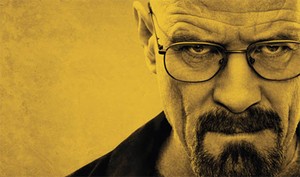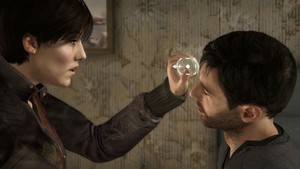
The video game industry has been infatuated with cinema for years. The obsession stretches back to the late 1980s, if not earlier. Titles like Prince of Persia scattered cinematic setpieces throughout: leaps of faith into nothingness, climactic battles upon crumbling bridges. There was delight when SEGA's Mega CD allowed the release of full motion video titles such as Night Trap, and even more when cutscenes and CG sequences became commonplace with the advent of PlayStation and games like Metal Gear Solid.
The industry constantly grasps towards and pines for its output to become like movies. As consoles become increasingly capable and games become ever-bigger business, it's no longer a goal that's completely out of reach. Naughty Dog's Uncharted series proves that it's now possible to emulate that feel of the summer blockbuster in a game.
Reel talk

As an audio-visual medium, it's easy to see why game makers fall for the charms of celluloid. Movies are often big, flashy, impressive – particularly the big films that games seek to imitate most often. They're impactful; they're accessible, independent stories that usually focus upon single events or offer a small window into a world, and should that one-off story exceed expectations, the franchising opportunities are lucrative. Films are prestigious money makers, part of an industry that closely aligns with games on a surface level; a medium that has long since proven and earned its reputation.
That's all well and good, but what about television? Yes, the programmes created for those little panels of wonders have their own hooks, entirely separate to the cinema heavyweights. Television is a medium that, with the help of pay-per-view giant HBO, has broken out as a serious platform for quality storytelling with unique benefits of its own. In many ways television's approaches to narrative could jive better with video games than film – so why don't more games follow the less trodden path of cinema's little brother?
Channel hopping

Due to their longer form, television series hold a huge amount of potential for multiple intricate storylines that stretch out further and run simultaneously, incorporating more characters and offering a greater period of time for exposition and build up. Heavy Rain straddles the worlds of television and film; it leads us through the actions of four main characters as they take up different roles in one central circumstance, each battling with his or her own ancillary conflicts along the way. It's content to slow to an amble occasionally, revelling in the minutiae of every day life, such as setting a table or knotting a tie, without shoehorning in unnecessary theatrics. Its slower moments help to build care for its characters and pay off hours later. It's in the minority, though; instead, the majority of games opt for a small clutch of characters, with one primary protagonist and a sole major plot. But despite video game viewpoints being narrowed down to just a few characters, there aren't many, if any, video game characters as deep as the likes of Omar Little, Walter White, Vic Mackey or Don Draper.

It would make sense for games to creep towards television due to their length. Your average film comes in at around two hours; your typical story-based game often shuffles between the 10 and 12 hour mark, about the length of a TV drama box set. A game holds a player's attention for so long that it's more than viable for it to contain expanded narrative that digs deeper into the backgrounds and actions of several characters or events. An hour of television skips between a multitude of stories at fast pace but still has the liberty to stop on scenes for elongated periods in pivotal moments. Wouldn't it be interesting to see a game take on similar ideals? Instead of hours solid of the same push forward, a game could be split into smaller chunks that alternate between several perspectives and locales more regularly to provide variety: more fleshed out worlds and characters, several story strands to explore at once and, ultimately, increased opportunities for exciting, affecting moments.
Play-per-view

Some games have already adopted television's episodic structure. Each of Asura's Wrath's chapters is built as its own semi-contained capsule of story, exploiting the construct to deliver cliffhangers, flashbacks, build and pay-offs. However, it doesn't take advantage of other possibilities in terms of complexities, focusing on a single character for the majority of its length and just one – undoubtedly epic – storyline. It's more of a stylistic choice than anything else. 2008's Alone in the Dark also tries to capture television appeal by letting players select episodes to play, commencing chapters with “previously on Alone in the Dark...” recap segments.

Others use episodes as a sales model rather than for pure narrative purposes, such as Telltale's Sam & Max seasons. And while downloadable content might be the elephant in the room that just won't stop trumpeting annoyingly, maybe it's actually something that could work comfortably with complex story-driven games of a certain ilk. Not all games should have to follow the film model, wherein successes are met with franchising and endless sequels. It could be both interesting and profitable to see a developer produce a video game in a similar way to a weekly TV drama on a download platform such as PlayStation Network, releasing their title in several smaller parts for a couple of coins each – close to the cost of a television episode on iTunes – with continuing storylines that compel players to keep on following the narrative.
Cinematic games aren't going anywhere, and we absolutely wouldn't want them to. But this industry is now bigger than its movie and music opposites in some territories – there's plenty of room for different approaches. With television's growing integrity and recognition, there's no reason why more games shouldn't start to draw more inspiration from the medium and pick up similar narrative constructs. In the Uncharted series we can reasonably fairly say that we've got a gaming equivalent of Indiana Jones. Countless alien invasion films are seen through titles like those in the Resistance series. But can we, hand on heart, say that there's a video game that pulls off a narrative on the level of The Wire? Of The Shield? Honestly, we're nowhere near. Yet.



Comments 8
hmmm... interesting thoughts . i am always suprised at the lack of FMV in modern games . back in the mid nineties the 3DO had plenty of FMV content ; most notably "the horde" , but also the original "need for speed" and "road rash" .
you mention "night trap" but who could forget the awesome "ground zero Texas" in all its grainy goodness on the megaCD.
games taken from tv shows ? well there's "starsky & hutch" on ps2 .
personally i'd love to see a game based on "benidorm" or "on the buses".
In that whole article, not a single mention of Tempus Chronicle. I'll give you the benefit of the doubt...you probably just hadn't heard of it. At least, there's really no other excuse seeing as you pretty much described the model this game is trying to follow.
Breaking Bad is awesome... I just needed to say that.
@Stuffgamer1 Seeing as it's not actually out yet, I think we can definitely be excused
@James
agreed
I'm curious to see how Atlus' Game of Thrones turns out. The television series has been a hit, to say the least.
@James: You're just not forward-thinking enough, then. I don't see why such an article couldn't mention an upcoming project. Especially one that's still so far from its funding goal so close to the deadline.
@Stuffgamer1 For precisely that point Besides, it's not a PlayStation game, so there's that.
Show Comments
Leave A Comment
Hold on there, you need to login to post a comment...